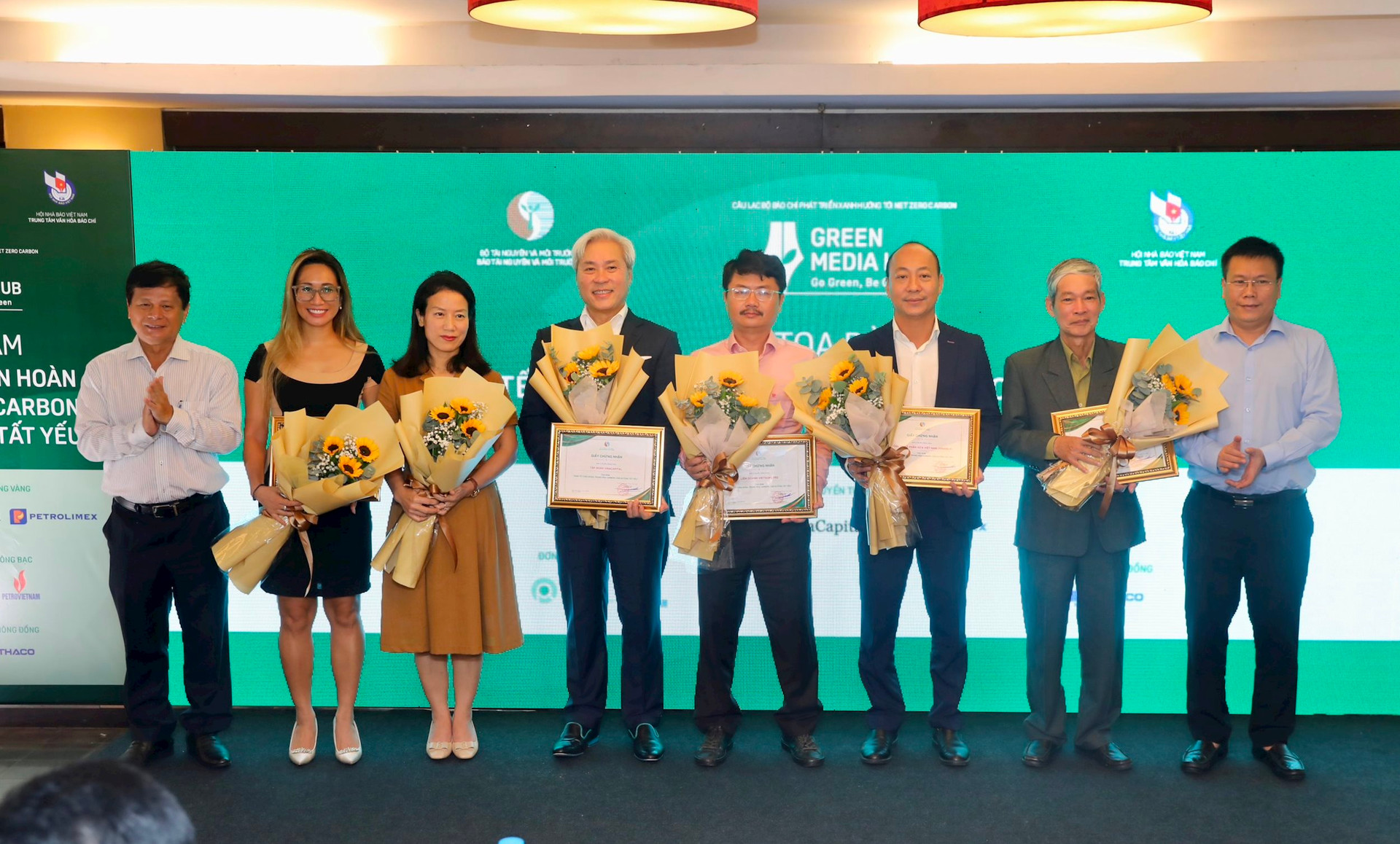
Green transformation is a must
Sharing with businesses, Dr. Le Xuan Nghia - former Vice Chairman of the National Financial Supervision Committee; Member of the National Financial and Monetary Policy Advisory Council; Director of the Carbon Finance Development Consulting Institute - CODE, gave an overview of the Carbon market picture in some countries around the world and from there, pointed out the advantages and challenges of Vietnamese businesses when participating in this market.
According to Dr. Le Xuan Nghia, green economy , carbon economy, carbon market... are not just environmental issues but also an economic era, an era of mandatory transformation, especially reporting on emissions, carbon indexes.... "In the future, in the very near future, I think that transparency of this information will certainly be mandatory. When listed on the stock exchange, in addition to financial reports, businesses will have to have reports on quantifying and inventorying the entire amount of their greenhouse gas emissions. The report on greenhouse gas emissions needs to be a mandatory report published periodically in addition to the financial report..." - Mr. Le Xuan Nghia said.
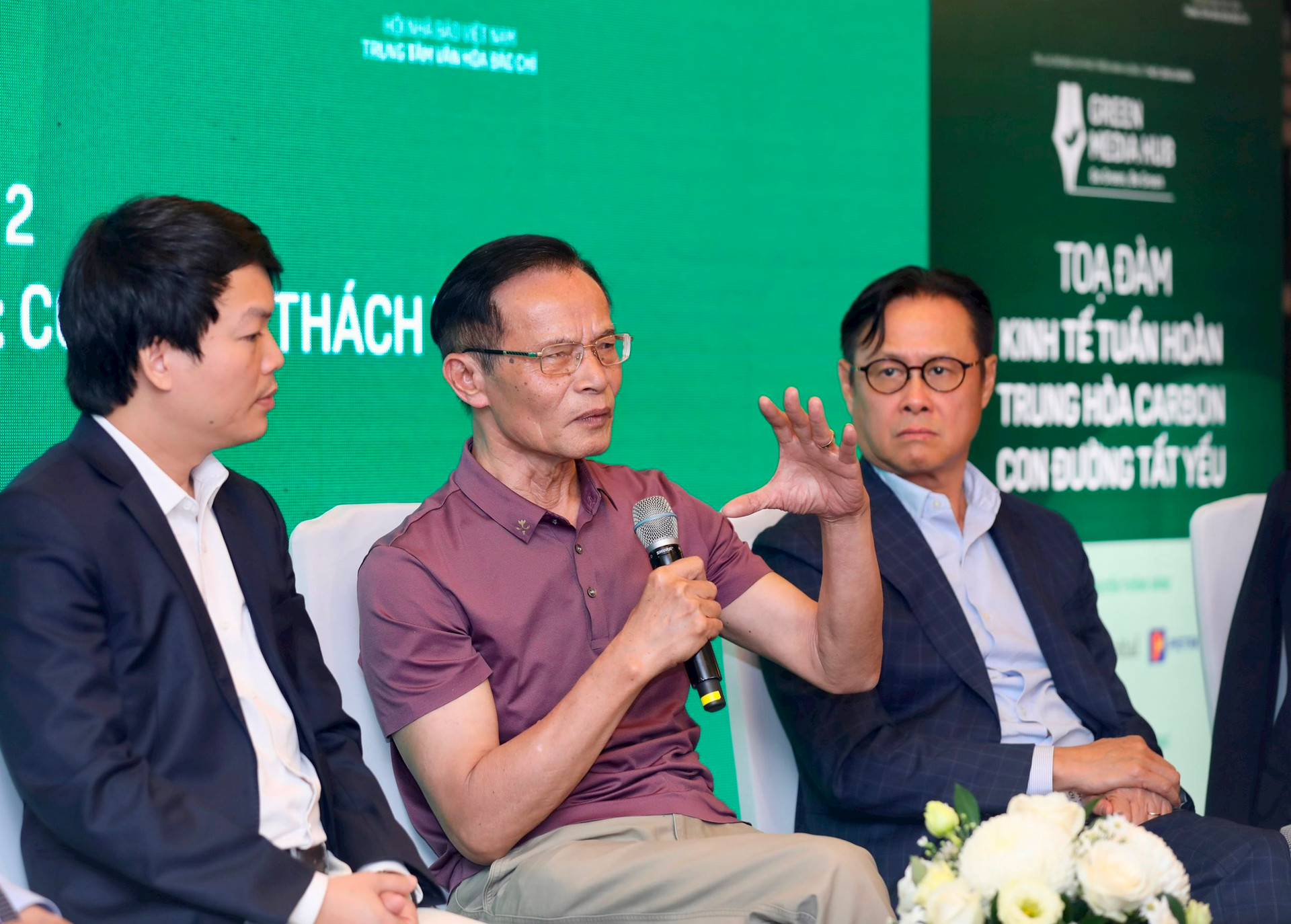
From a similar perspective, Associate Professor, Dr. Nguyen Dinh Tho - Director of the Institute of Strategy and Policy on Natural Resources and Environment ( Ministry of Natural Resources and Environment ) assessed: The role of enterprises in reducing emissions is very important. Currently, green transformation is a mandatory requirement for enterprises. With the concept of a circular economic institution including the specialization of environmental protection laws, we set out requirements and economies that exceed regulations on the right to classify waste at source, regulations on expanding many producers, regulations on regulations on green vouchers for ecological circular economy, these are all regulations designed to serve the circular economic model analyzed so far.
“Simply put, everything we are enjoying, free water, free air, free land… free, gradually those resources will have fees, currently land preservation has fees, there are fees to ensure fairness in the future, we must bring them back to regulations and pay for services when using them” - Associate Professor, Dr. Nguyen Dinh Tho said.
I am very excited about our Green Media Hub activities today.
This can be the basis for us to communicate to businesses and people so that we can successfully implement the circular economic model in Vietnam and thank businesses for accompanying the Government and the community to join hands for a prosperous and peaceful world for people and our planet.
Associate Professor, Dr. Nguyen Dinh Tho
Our Vietnam has committed to zero waste by 2050, from regulations to waste separation at source. Up to now, we have been using it for free, but we should gradually charge a fee for the natural ecosystem to balance development and renewable use to balance the current and future generations. Associate Professor, Dr. Nguyen Dinh Tho emphasized: the environmental protection law stipulates ecological services and according to this regulation, all our rights mean that all users must pay a fee, whoever uses the new thing that is transferred to nature must pay to solve the three balance relationships: balance between conservation development, balance between upstream and downstream areas, conservation areas and areas with converted purposes, and balance for future generations. If we do not implement the regulations on circulation, we will be eliminated from the game.
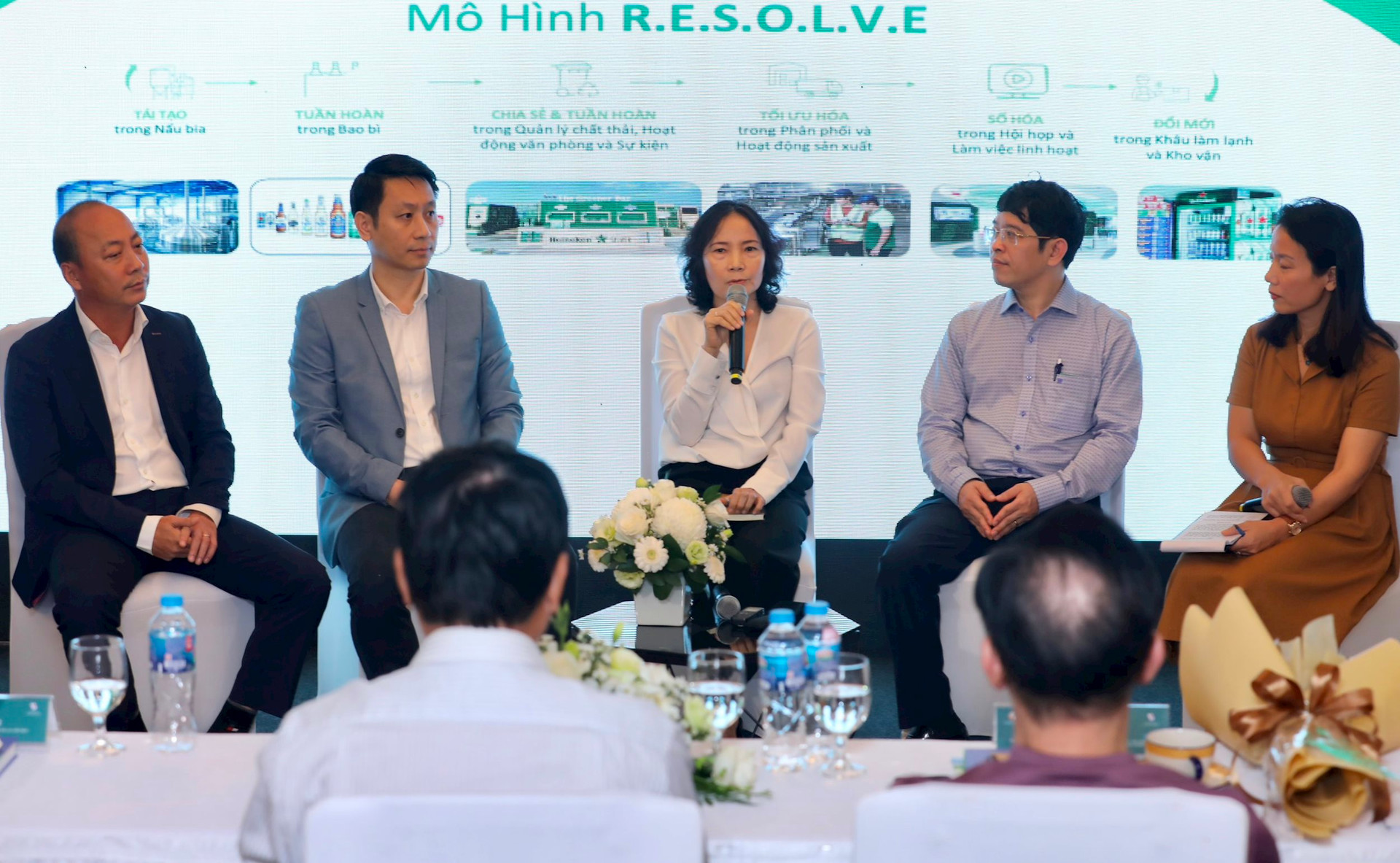
The world carbon credit market is very active .
Answering questions from businesses and interested media, Dr. Bui Duc Hieu - Deputy Director of the Department of International Cooperation, Ministry of Natural Resources and Environment said that currently, the carbon credit market in the world is very active, in all continents, however, each country and each region has different operating methods and history.
Specifically, firstly, in terms of implementation time, the European Union's carbon market was the earliest in the world in 2005, and has gone through 5 stages so far. Next is the Korean market, which was tested in 2012, officially in 2015 and went through 3 stages. The Chinese market was tested in 2012 in some provinces and officially nationwide in 2022, the UK from 2021, Japan has just finished testing, officially operating from April 2023...
So what are the opportunities for Vietnamese businesses to cooperate internationally to share the "benefits" from this financial flow? Dr. Bui Duc Hieu said: For our country, as a developing country, the economy and production are highly open, if we apply the market early, which means forcing businesses to reduce emissions, it will have a huge impact on the economy, businesses will have to spend a lot of money to convert technology.
“Technologies to reduce emissions are very expensive. In addition to the cost of purchasing and converting technology, we also have to consider the human resources to operate and master those technologies and machines. However, we have to do it, we have to convert, otherwise we will fall behind the world,” said Dr. Bui Duc Hieu.
Regarding business benefits, Mr. Bui Duc Hieu said that businesses will have many advantages and also many challenges to face in the game towards net zero and the carbon market.
On a macro level, businesses that reduce emissions and participate in the carbon market are working with the Government to fulfill international commitments in reducing emissions. Directly contributing to the work of protecting humanity from the impacts of climate change.
Regarding the direct benefits that businesses get: Participating in the carbon market, green finance will certainly increase the brand of the business, thereby helping businesses gain many plus points in negotiations and exporting products; Besides, businesses implementing emission reduction is also an opportunity for businesses to change their production models and technologies because none of us can live with the old forever, we must always renew ourselves to survive and develop. Thereby creating credits to sell to the market, earning profits.
As for credit intermediary businesses and trading floors, Mr. Bui Duc Hieu believes that this is also an opportunity to have another product to trade and exchange. “And like other countries in the world, I believe our credit trading market will be very vibrant...” - Dr. Bui Duc Hieu said.
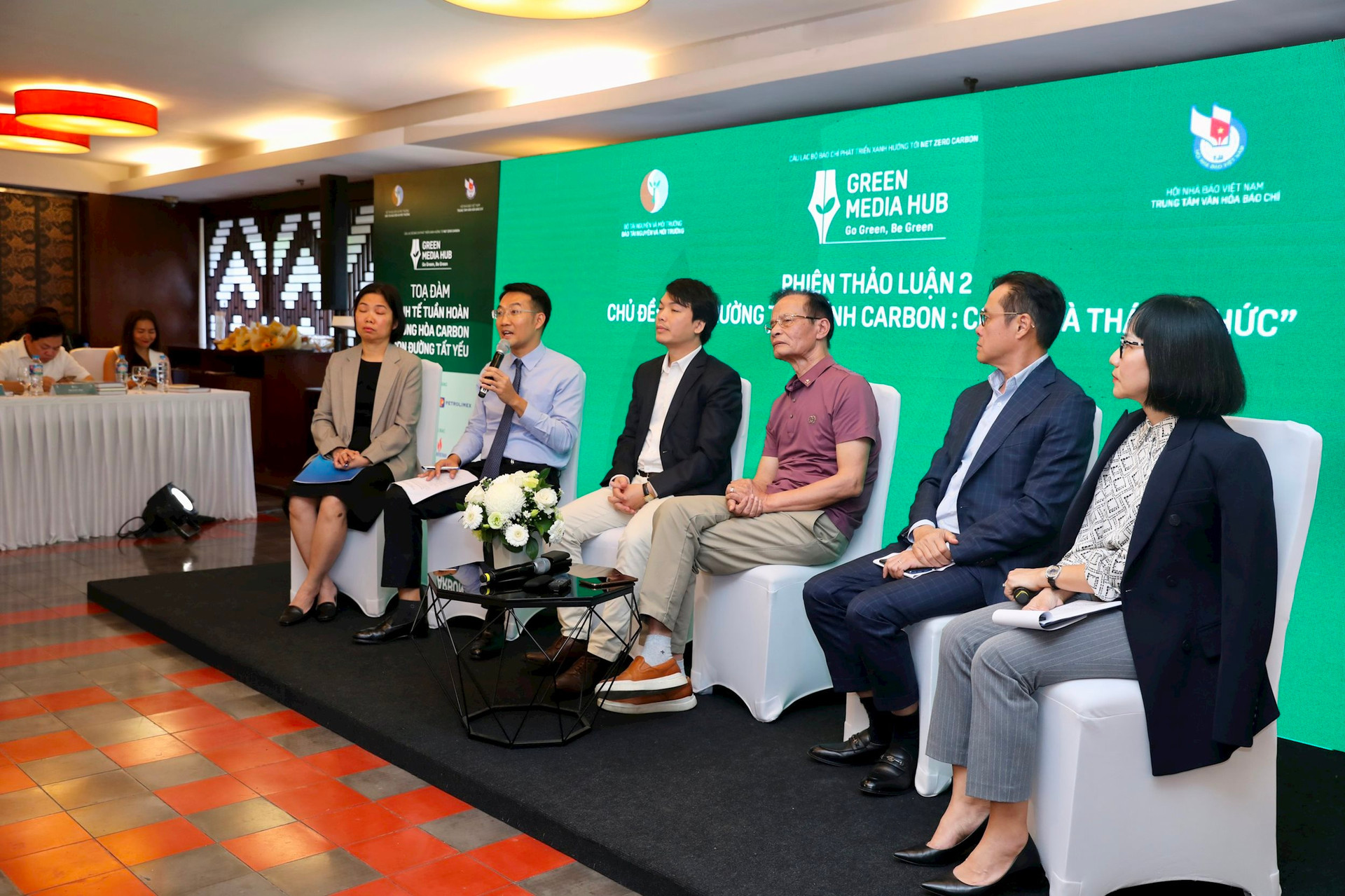
Business is ready
According to Ms. Le Thi Ngoc My - Director of Sustainable Development of HEINEKEN Vietnam, sharing one of the key points to successfully apply the circular economy model is to raise awareness and capacity: after many years of applying the circular economy according to the 3Rs model (Reuse, Reduce and Recycle), in Vietnamese, HEINEKEN Vietnam wishes to go further on the journey of applying the circular economy in the company's production and business activities.
And that is also the spread of practice in both work and daily life. From small things like the Green Office program calling for waste classification, limiting the use of single-use plastic, setting up a station to borrow cups and food containers for employees when they need to buy coffee, milk tea and food from outside to bring into the office. The relaxation and coffee drinking area at the Da Nang factory is made from used materials. The Greener Bar located at Heineken brand events is designed and built with 100% materials that can be reused and recycled after the event. "And especially, that is the role of communication: sharing and spreading circular economic practices within the company as well as outside to share experiences, learn and replicate good practices and encourage innovation in circular economic practices" - Ms. Le Thi Ngoc My said.
From a similar perspective, Mr. Khuat Quang Hung, Director of External Affairs and Communications, Nestlé Vietnam, said that it is necessary to shift from a linear economic model (exploiting natural resources to produce raw materials and products, selling them to the market and releasing waste into the environment) to a circular economic model (producing, consuming and recycling to increase the life cycle of raw materials and products) to help reduce resource exploitation and minimize environmental pollution. In Vietnam, Nestlé is one of the pioneering enterprises with initiatives to help reduce emissions and protect resources. In particular, design improvements to eliminate unnecessary packaging, reduce the use of virgin plastic, and replace them with environmentally friendly materials have helped Nestlé Vietnam reduce nearly 2,500 tons of plastic packaging in 2 years (2021 - 2022). To date, about 94% of the company's product packaging is designed to be recyclable and reusable.
Some of Nestlé Vietnam’s initiatives include using recycled PE plastic for NESCAFÉ product packaging, switching from disposable plastic straws to FSC-certified paper straws for all ready-to-drink products. Nestlé Vietnam is also moving towards using single-layer packaging for easier recycling.
In production, the application of the circular economy model has helped all Nestlé Vietnam factories achieve the goal of “No waste landfilled in the environment” since 2015, through the collection, classification, recycling and reuse of waste. Currently, 100% of Nestlé Vietnam's post-production coffee grounds are reused as biomass materials, helping to reduce gas consumption and CO2 emissions. Non-hazardous sludge from production activities after being treated is also used to produce fertilizer. Waste sand from boilers is provided to local unburnt brick manufacturers, serving construction projects. Once the products reach consumers, the acceptance and support of consumers for products from the circular economy will be the driving force for businesses to continue their transformation. Therefore, Nestlé Vietnam carries out many communication activities, raises awareness and changes consumer behavior, including: Deploying a series of programs such as "Say no to single-use plastic", "Collect and classify used packaging"... Not only applying circular economic practices in its business, Nestlé Vietnam is also strongly supporting farmers to shift to regenerative agriculture.
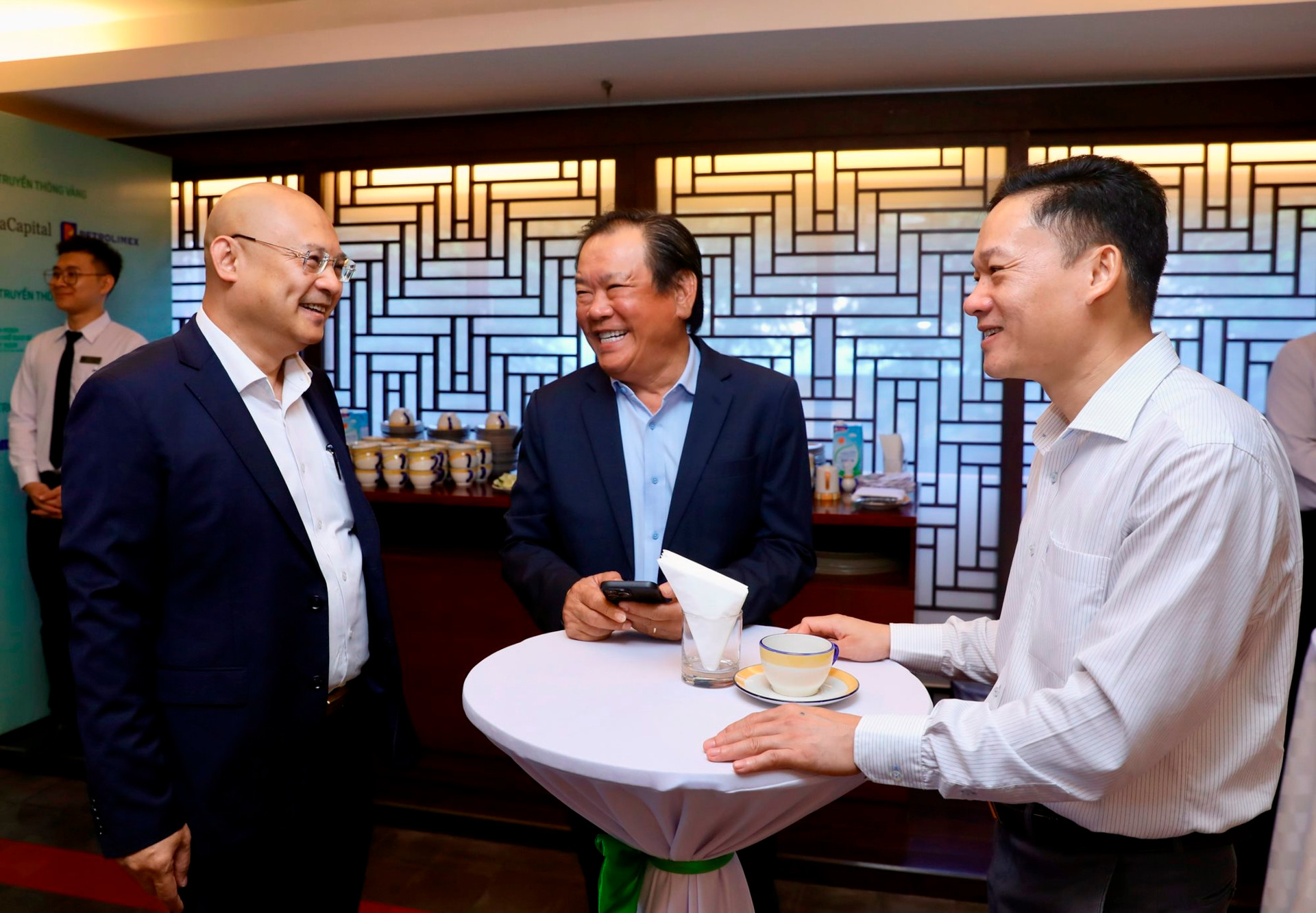
According to Mr. Khuat Quang Hung, the Vietnamese government has committed to the goal of achieving net zero emissions by 2050. In addition, the government has also issued policies and strategies to promote green growth, sustainable growth in areas such as agriculture, industry, as well as orientations to attract new generation investment.
As a leading food company, Nestlé focuses on solutions to reduce greenhouse gas emissions throughout the entire supply chain, as well as promoting the transition to sustainable agricultural practices to build a regenerative food system, contributing to ensuring sustainable food supply, addressing climate change, enhancing livelihoods and biodiversity. Sustainable agriculture according to Nestlé's approach is natural farming. For a long time, to increase crop yields, farmers have used chemical fertilizers and pesticides uncontrollably, negatively affecting the quality of the soil. If this farming method continues, there may be no food left for future generations. Therefore, Nestlé encourages farmers to switch to regenerative agriculture - a method based on the quality of soil and crops. Nestlé believes that this method can help protect our planet.
Mr. Khuat Quang Hung said: “Nestlé Vietnam has resources, knowledge and techniques from the group, and at the same time shares and trains sustainable farming methods with farmers. It is very difficult for farmers to change their farming habits such as reducing the use of chemical fertilizers, but Nestlé Vietnam's agricultural staff always work closely with farmers so that they understand and can apply them. Nestlé Vietnam needs to promote change, from small things like helping farmers know when to water their plants because using too much water is not good for the soil. Nestlé Vietnam also encourages the reasonable intercropping of coffee with other plants such as pepper. This is not only good for the plants, but also helps farmers earn more income.”
From an industry perspective, Mr. Nguyen Quoc Khanh - Chairman of the Handicraft and Wood Processing Association of Ho Chi Minh City (HAWA) - said that with the commitment to the goal of Vietnam achieving "zero" net emissions by 2050 and the commitment to combat forest degradation under the European Commission's EUDR anti-deforestation regulations that will be applied by the end of 2024, the wood industry has both great long-term opportunities and immediate challenges.
According to Mr. Khanh, the wood industry benefits from the trend of using wood materials to replace high-emission materials such as metal, plastic, concrete, etc. In addition, wood is not only widely used in interior products as before, but will have great opportunities in the construction industry with Mass Timber (large structural wood). In addition, wood materials will also be widely used in the renewable biomass energy industry, consumer industry, packaging, etc. because of their low emission capacity, easy decomposition and recycling. "With the ability to emit negative emissions, the wood industry and especially forestry can achieve carbon credits to trade to offset other industries," Mr. Khanh commented.
Mr. Nguyen Quoc Khanh said that the challenge for businesses to participate in the carbon market is huge. Therefore, in addition to having legal policies, it is necessary to have an infrastructure to support this market, including building a database for management, digital transformation, and the participation of banking and insurance institutions to create a mechanism to promote the planting of large timber forests, both creating output with high added value and adding income from carbon credits.
Source




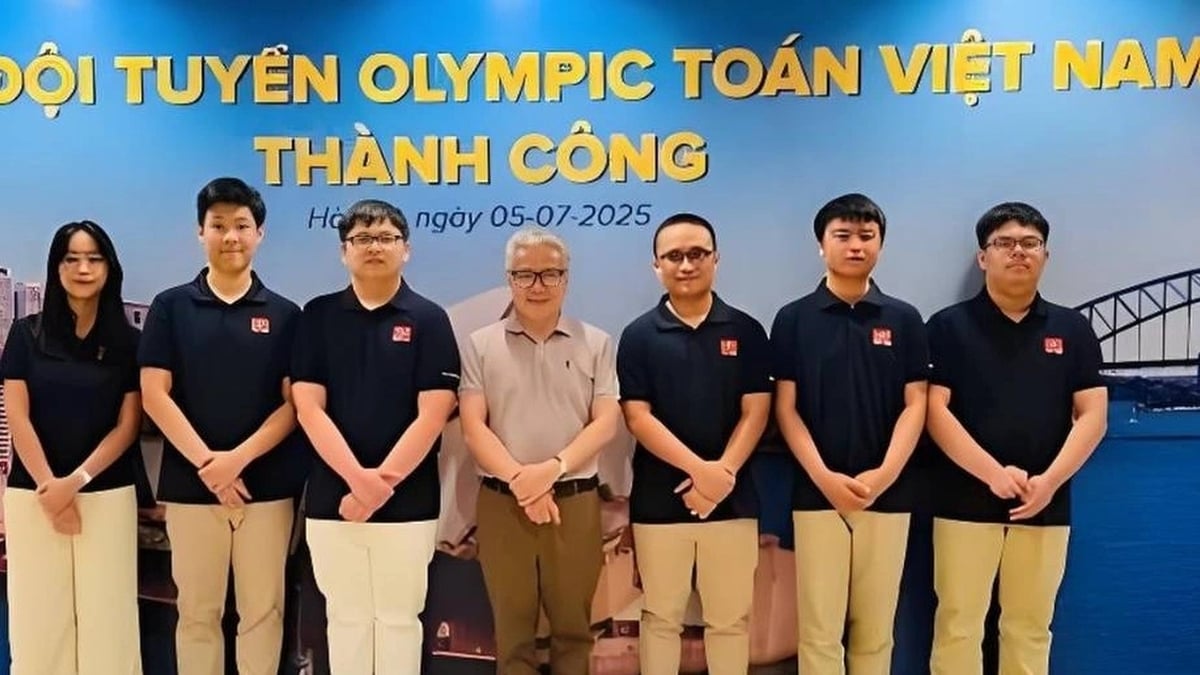
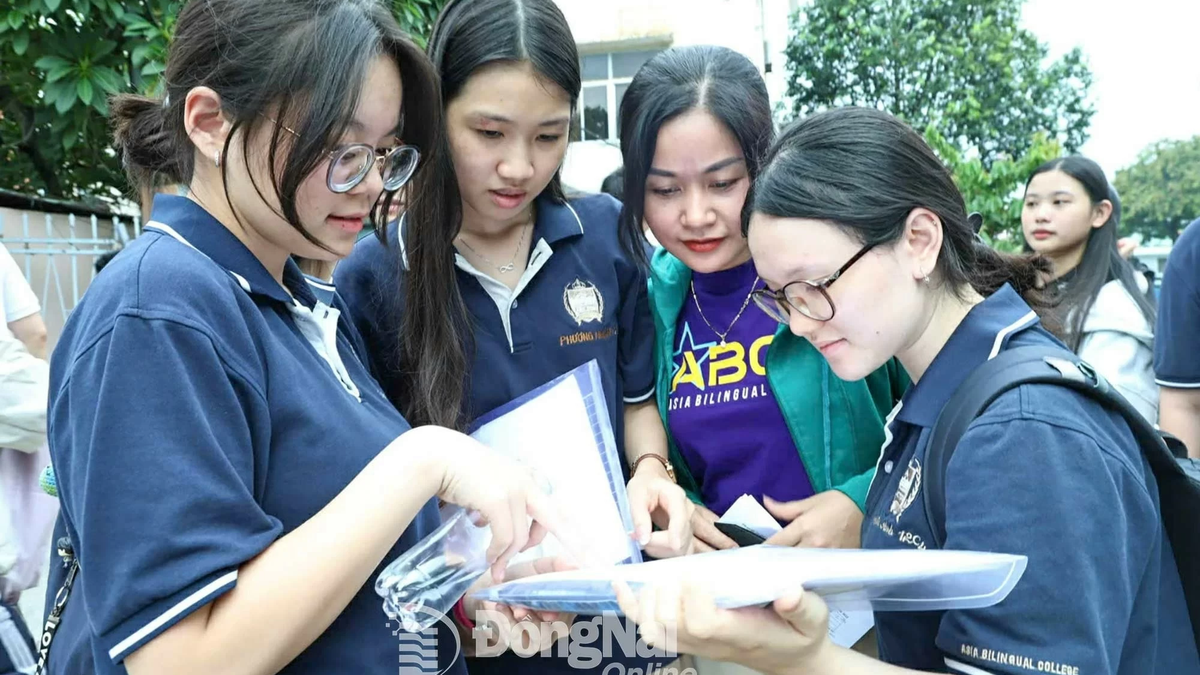
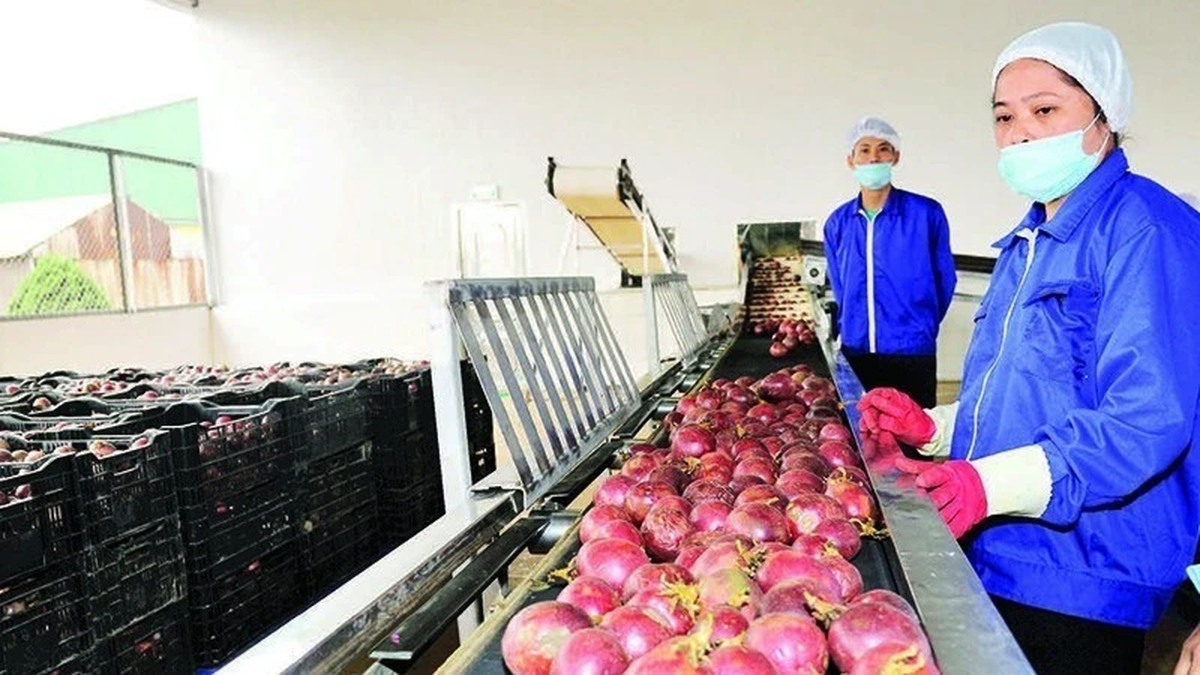

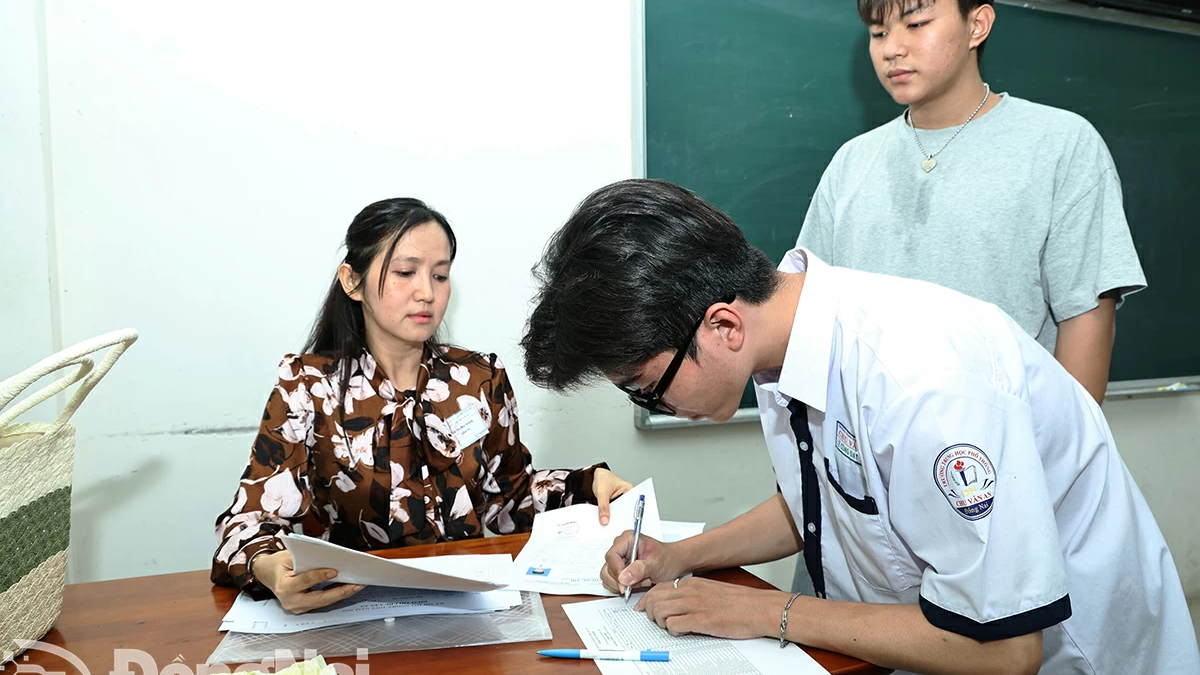

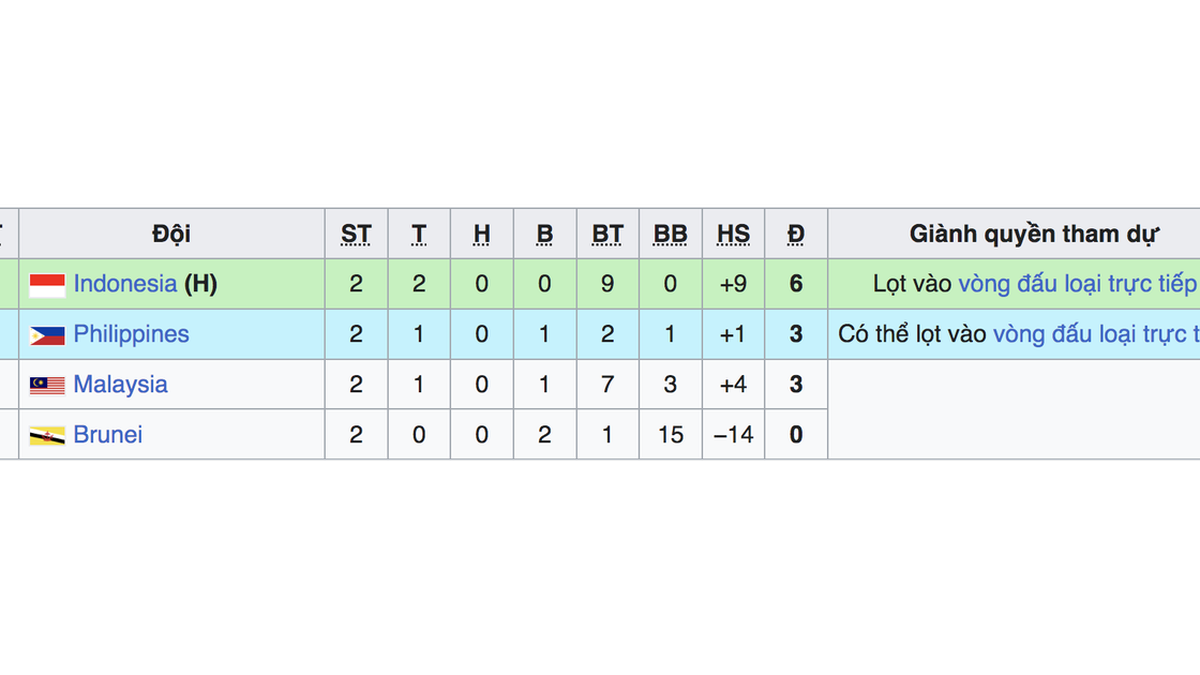


















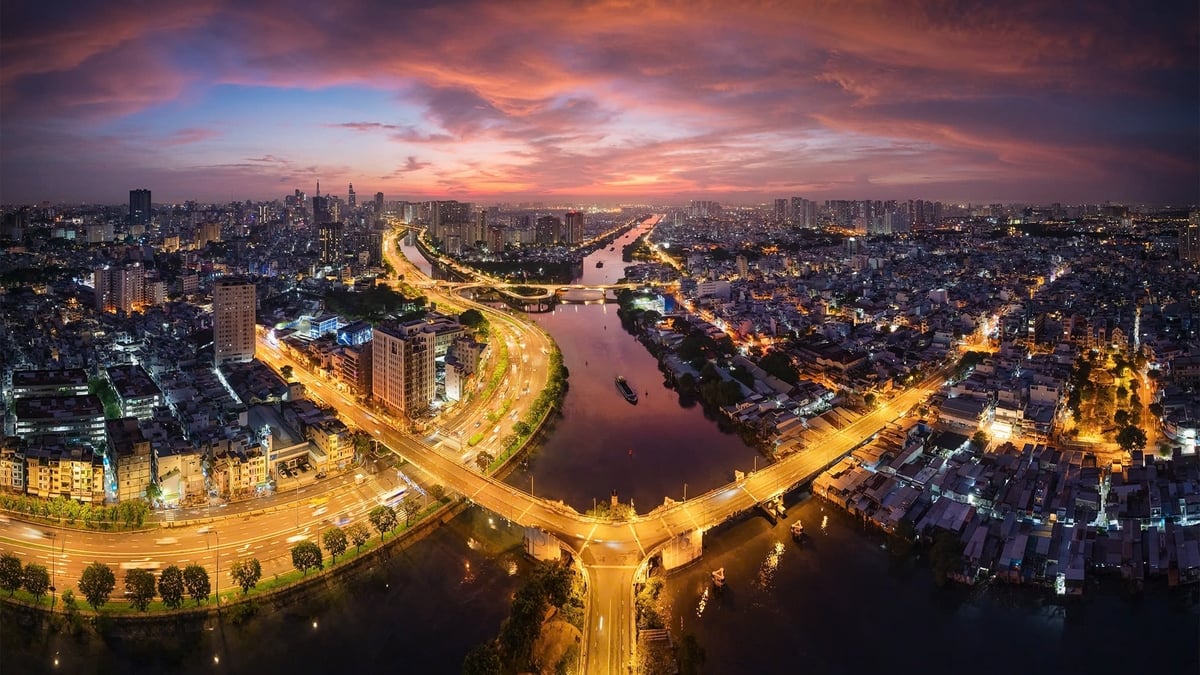







































































Comment (0)